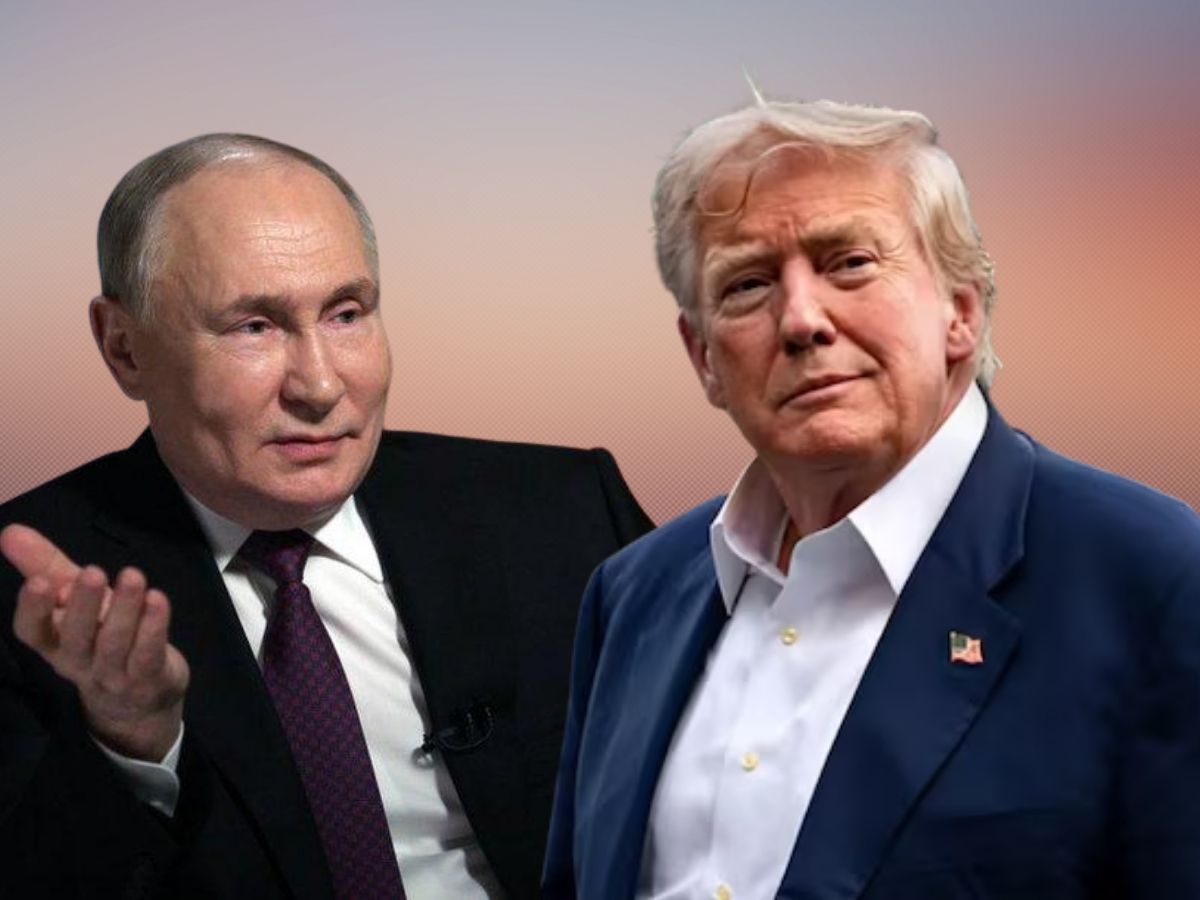US President Donald Trump’s recent meeting with Russian President Vladimir Putin in Alaska appears to have sparked a new controversy, with reports suggesting that Trump conveyed a demand from Putin regarding Ukrainian territory to President Volodymyr Zelenskyy, which the latter rejected.
According to a Reuters report published Saturday, the demand was for Ukraine to cede Donetsk — a key industrial region that has been the target of Russian military efforts since the war broke out in 2014.
Zelenskyy, for his part, has reportedly rejected the demand.
So, where is Donetsk and why is the region so crucial for both Russia and Ukraine? Here is what we know:
What Happened at the Trump-Putin Summit in Alaska?
During Trump and Putin’s meeting in Alaska on Friday, the Russian president is believed to have suggested that Ukraine would need to cede Donetsk for a ceasefire to be negotiated. In the subsequent briefing with Zelenskyy, Trump reportedly told the Ukrainian leader about Putin’s offer to freeze most of the frontlines if Kyiv’s forces agreed to pull out of Donetsk. Zelenskyy, however, rejected the offer outright, as reported by Reuters.
A source familiar with the high-level talks told the US-based news agency that Putin’s proposal was centered on the industrial region of Donetsk, a place Russia has sought to control since it first intervened in the region back in 2014. Moscow’s latest demand for Kyiv’s territorial withdrawal is part of the Kremlin’s wider objective in the Donbas, where the long-drawn conflict has already reportedly claimed thousands of lives over the past several years.
The Battle for Donetsk
Donetsk is an industrial hub of eastern Ukraine, particularly known for its vast coal reserves and heavy manufacturing capabilities. The region, analysts say, has long been a point of pride, as well as contention for Kyiv. Historically, Donetsk has been a major driver of Ukraine’s economic growth, contributing significantly to the country’s coal mining and steel production.
Since the war began, much of Donetsk’s economic output and infrastructure has been either been destroyed or overtaken, foreign media reports suggest. Yet, the region remains strategically important due to its fortified defense lines, which, in recent times, appear to have slowed down Russian advances and hindered Russian forces’ control over the entire Donbas region.
Zelenskyy has repeatedly stressed that Ukraine cannot afford to lose Donetsk, not only because of its economic significance but because of its military value. “We will not leave Donbas. We cannot do this,” The Independent quoted Zelenskyy as saying even as the Ukrainian leader warned that giving up Donetsk would pave the way for further Russian advances into central Ukraine.
Putin’s Longstanding Desire for Donetsk
Since 2014, Putin has sought to gain control over the region, alongside neighbouring Luhansk, by allegedly providing back support to separatists and eventually moving the Russian forces on ground. The Donbas — a coal-rich region in southeastern Ukraine — could potentially offer Moscow economic advantages, especially in terms of coal reserves and heavy industry.
Reports suggest Russia already controls about 75% of Donetsk, and much of Luhansk, with its forces pushing towards other key Ukrainian cities, including Sloviansk and Kramatorsk, which are seen as the last bastions of the Ukrainian defense in the region.
Observers say should Russia gain full control of the region, it would leave Kyiv particularly vulnerable as Ukraine’s eastern defenses could be severely weakened.
Zelenskyy’s Stance: Why Giving Up Donetsk Is Not an Option for Ukraine
For Ukraine, Donetsk makes for a key defensive position as the region’s “fortress cities,” including Sloviansk and Kramatorsk, form a defensive line that is believed to have repelled Russian advances for years. This fortified zone — described as a “deep, layered defense” with bunkers, minefields and other obstacles — has been designed to halt Russian progress.
“Losing this line would have catastrophic consequences for Ukraine,” Elina Beketova, an expert on European defense policy, explained while speaking with The Independent. If Russia takes full control of Donetsk, it would gain an open path to other key Ukrainian territories, such as Kharkiv and Poltava, thereby making it effectively easier for the country’s forces to advance further westward.
Zelenskyy has consistently insisted that Ukraine needs security guarantees to deter any future Russian invasions, repeatedly rejecting any negotiations that involve ceding Ukrainian land.
Inside Trump’s Role In Peace Negotitions
Trump’s involvement in the discussions has raised several eyebrows, especially against the backdrop of his latest remarks suggesting that the best way to end the war may be through a peace deal rather than a ceasefire. “Russia is a very big power, and they are not,” Trump recently said in a Fox News interview, indicating that Ukraine should consider making concessions to end the war.
Zelenskyy and Ukraine’s EU allies have conspicuously been wary of Trump’s position on the matter. While the US president has advocated for a peace deal, European leaders, including British PM Keir Starmer, have insisted that sanctions on Russia should remain in place.







